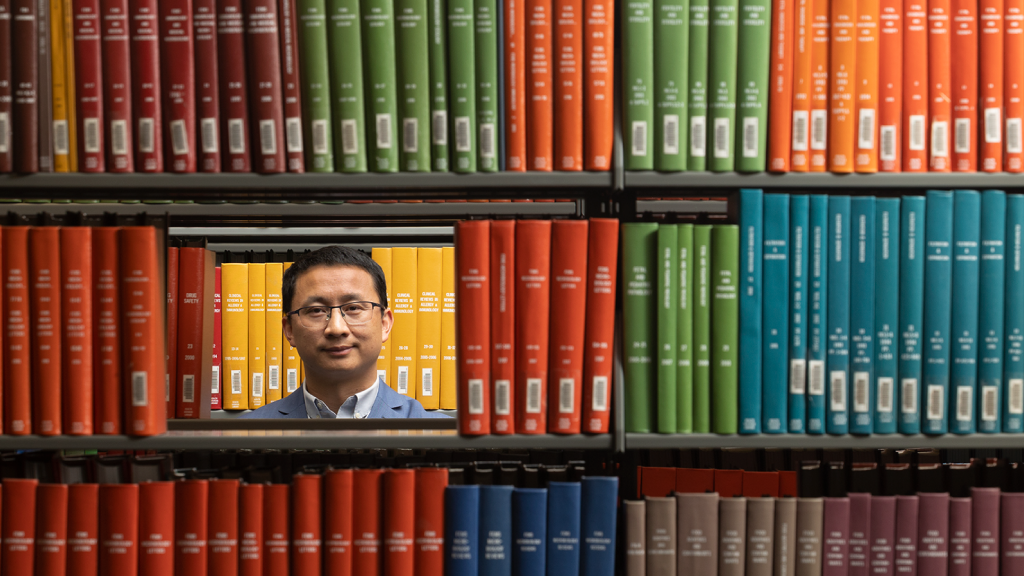Imagine wanting to compile all the research that exists on one particular topic. To do so, you collect every academic paper that mentions it and end up with thousands of papers that need to be screened and sorted to find the most relevant papers on said topic. Then, you need to use that information to write a new paper providing a comprehensive overview of all that material.

Weiming Tang, associate professor of medicine and co-director of UNC Project-China, at Health Sciences Library (photo by Alyssa LaFaro)
In a nutshell, that’s what a systematic review is. Health researchers engage in this process often, to not only provide the best recommendations for medicines and practices, but to uncover gaps in the research and improve future work in that area.
Infectious disease researcher Weiming Tang engages often with librarians at the Health Sciences Library whenever conducting a systematic review. Thankfully, the process described above can be completed digitally to find all of the materials necessary to complete a review. Even so, the entire process can take as long as two years.
Most recently, Tang worked with librarian Jennifer Bissram on a systematic review for tuberculosis care and treatment. Bissram starts by creating a search algorithm, which she tests with random papers generated by Tang and his team to make sure it identifies the materials they’re looking for. If the algorithm is unsuccessful, Bissram creates another and tests, repeating this process until she finds one, or more, that works.
Once a successful algorithm is created, Bissram uses it across multiple databases, collects the results and deletes duplicates. This is followed by a screening process to identify whether each paper found meets the criteria for the study. They start by reviewing titles and abstracts, narrow their results and then complete a full text review, examining the remaining studies in detail. For this particular project, Tang and Bissram whittled 20,000 results down to 250 papers.
After Tang starts writing the review, Bissram will check in to make sure it follows publication guidelines. This ensures a high-quality review with literature-generated evidence that can be duplicated.
“In the past seven years, I think I’ve done at least 10 systematic reviews with Jennifer, and she helped with the whole process,” Tang says. “This is very time-consuming, and she needs to understand exactly what I want from the literature — and she’s not a researcher in my field. She and the Health Sciences Library are a fundamental part of this work.”
This story originally appeared as part of the Endeavors article “Powered by Libraries,” examining the ways that Carolina’s libraries drive research. Story by Alyssa LaFaro.
- Weiming Tang is an associate professor of medicine within the UNC School of Medicine and co-director of UNC Project-China within the Institute for Global Health and Infectious Diseases.
- Jennifer Bissram is a librarian in the UNC Health Sciences Library and liaison to the Adams School of Dentistry for University Libraries.


